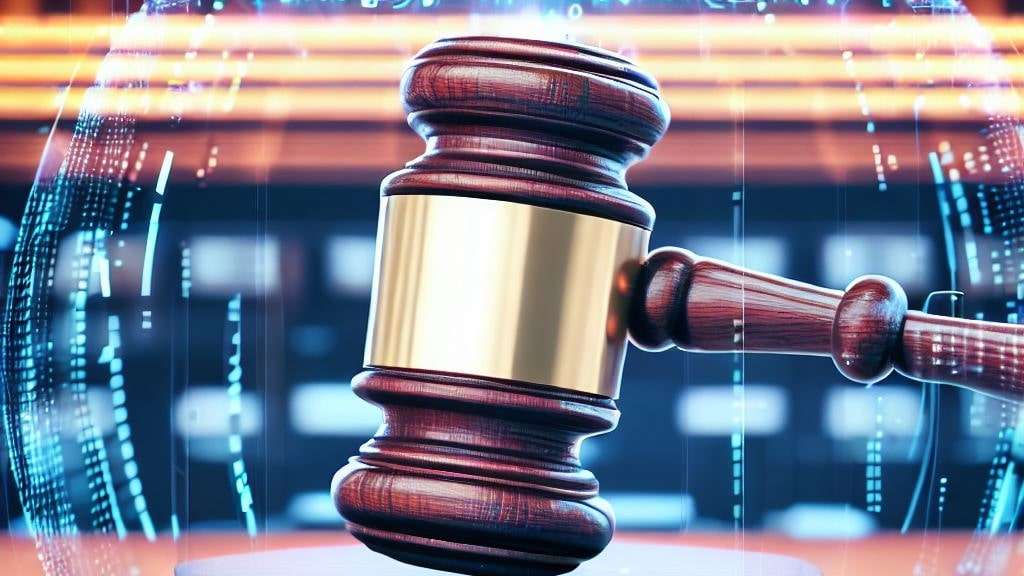
In a bold move that could reshape the future of decentralized finance (DeFi), Coinbase CEO Brian Armstrong has urged DeFi protocols to take legal action against the Commodity Futures Trading Commission (CFTC) following recent enforcement actions. These actions have raised questions about the applicability of existing regulations to DeFi projects and the potential consequences for the industry’s growth.
Armstrong’s call to arms comes in response to the CFTC’s recent crackdown on DeFi protocols, including Opyn, ZeroEx, and Deridex, which were ordered to pay civil monetary penalties ranging from $100,000 to $250,000. The charges primarily revolved around alleged violations related to registration and compliance with the Commodity Exchange Act.
In a statement posted on the social media platform X, Armstrong argued that the CFTC should refrain from initiating enforcement actions against DeFi protocols. He contended that DeFi projects operate differently from traditional financial service businesses and questioned whether the Commodity Exchange Act even applies to them.
Armstrong believes that pursuing enforcement actions against DeFi protocols could potentially drive innovation offshore, stifling the growth of this rapidly evolving sector. His hope is that DeFi projects, including Opyn, ZeroEx, and Deridex, will choose to challenge these enforcement actions in court, aiming to set legal precedents and bring clarity to the regulatory landscape.
Armstrong expressed confidence in the ability of the courts to uphold the rule of law and provide much-needed guidance in this complex and dynamic industry.
Coinbase, a prominent cryptocurrency exchange, has also faced its share of regulatory challenges. In June, the Securities and Exchange Commission (SEC) filed charges against Coinbase related to various aspects of its business. These charges included allegations of operating without proper registrations as an exchange, broker, or clearing agency.
The DeFi Landscape: A New Frontier
Decentralized finance, or DeFi, represents a groundbreaking evolution in the world of finance. It relies on blockchain technology to provide decentralized, peer-to-peer financial services without the need for traditional intermediaries like banks or brokers. DeFi platforms offer lending, borrowing, trading, and yield farming services, among others, directly to users, often with higher levels of transparency and accessibility.
However, the nascent nature of DeFi has left regulatory bodies like the CFTC grappling with how to apply existing laws to this innovative landscape. DeFi protocols, built on smart contracts, often operate autonomously, making it challenging to determine whether they fall under the purview of traditional financial regulations.
Armstrong’s Argument: Challenging the Status Quo
Brian Armstrong’s call for DeFi protocols to challenge the CFTC’s enforcement actions stems from a fundamental question: does the Commodity Exchange Act, originally designed for traditional commodities trading, apply to decentralized finance projects?
The Commodity Exchange Act, enacted in 1936, primarily regulates commodity futures and options markets. It was not crafted with DeFi platforms in mind, which operate in a fundamentally different manner. Armstrong argues that the CFTC should exercise caution when extending its jurisdiction to DeFi, given the unique characteristics of this emerging sector.
The Impact of Regulatory Actions on DeFi
The recent CFTC enforcement actions have raised concerns among DeFi proponents and industry insiders. Many fear that aggressive regulatory actions could stifle innovation, drive projects offshore, and discourage investment in the sector.
DeFi protocols are at the heart of a transformative shift in finance, offering opportunities for financial inclusion and economic empowerment. However, overregulation could potentially hamper these projects’ ability to innovate and provide accessible financial services to a global audience.
Setting Legal Precedents: The Way Forward
Brian Armstrong’s call for DeFi protocols to challenge the CFTC’s actions in court has garnered support from various quarters. The goal is to establish legal precedents that will clarify the regulatory landscape for DeFi, providing a framework that fosters innovation while ensuring compliance with applicable laws.
The willingness of DeFi projects to take these legal actions could have far-reaching implications for the entire industry. It could help define the boundaries of regulation, establish a clear roadmap for compliance, and ultimately provide greater certainty for investors, developers, and users of DeFi platforms.
The Role of the Courts: Upholding the Rule of Law
Armstrong’s confidence in the judiciary’s ability to navigate the complexities of DeFi regulation is based on the belief that courts can provide impartial and informed decisions. Legal challenges would require a thorough examination of the Commodity Exchange Act’s applicability to DeFi and the broader implications of regulatory actions on the industry.
By seeking legal redress, DeFi protocols aim to contribute to the development of a regulatory framework that strikes a balance between innovation and compliance. This process could result in a more mature and secure DeFi ecosystem that encourages responsible growth.
Coinbase’s Regulatory Journey
Coinbase, a leading cryptocurrency exchange, has not been immune to regulatory scrutiny. In June, the SEC filed charges against Coinbase, alleging various regulatory violations related to its business operations. These charges included operating as an exchange, broker, or clearing agency without the necessary registrations.
Coinbase’s legal battle with the SEC underscores the broader challenges faced by cryptocurrency and blockchain companies as they navigate evolving regulatory landscapes. The outcome of such cases can have a significant impact on the cryptocurrency industry’s regulatory framework.
In Conclusion: Shaping the Future of DeFi
Brian Armstrong’s call for DeFi protocols to challenge the CFTC’s enforcement actions reflects the broader debate surrounding the regulation of decentralized finance. As DeFi continues to grow and evolve, regulatory bodies must strike a delicate balance between safeguarding investors and fostering innovation.
The outcome of legal challenges brought by DeFi projects could set a precedent for the industry’s regulatory future. It will be crucial for stakeholders, including regulators, developers, and users, to engage in constructive dialogue to ensure that DeFi can flourish while adhering to applicable laws.



Get the latest Crypto & Blockchain News in your inbox.